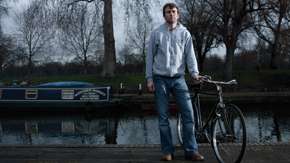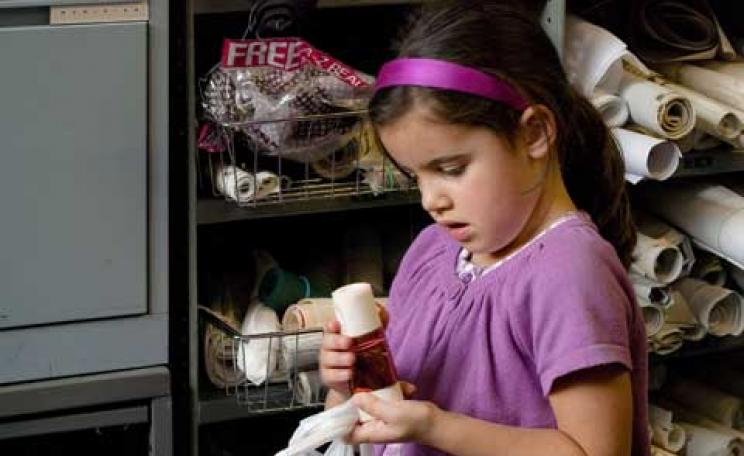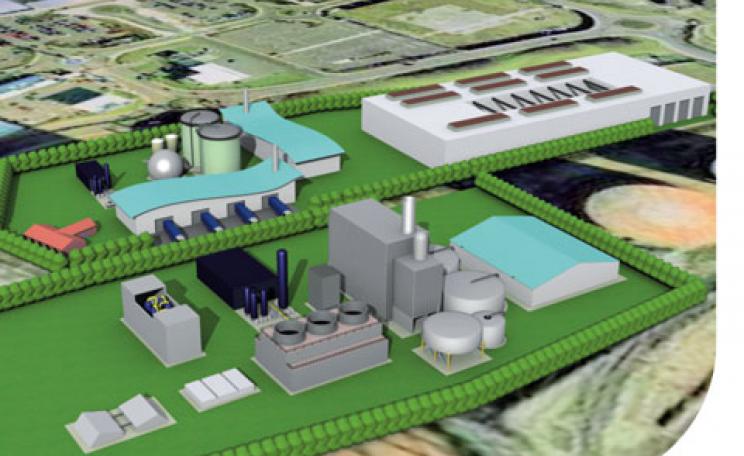A group of elderly, indigenous women wearing traditional hand-made dresses sit in a circle and exchange stories. Their continuous pedalling would go unnoticed, were it not for the noisy churning of the blenders placed on top of tables in front of them. The machines have enabled these women to form their own business: the sale of blue agave shampoo produced at their humble, cinderblock home.
The pedal-powered blenders are capable of speeds of up to 6,400 RPM and are used in multiple capacities in the community, from simple food processing to more creative applications.
They are but one example of several bicimáquinas (bike-machines) designed and built at Maya Pedal, a locally-run NGO in the small, rural town of San Andrés Itzapa, Guatemala, which is still primarily inhabited by the Mayan people of Cakchiquel descent.
Thanks to the organisation, community members benefit from water pumps to irrigate their fields, mills to grind corn, devices for manufacturing concrete tiles, electricity generators capable of storing electricity in car batteries, coffee pulping machines that can accumulate up to 8000 pounds daily, trikes and trailers to transport people and goods within the community, and even three-cycle washing machines, all operated essentially while exercising.
A revolutionary machine
The NGO itself is the product of a collaboration that took place in 1997 between a group of Canadians from the organisation Pedal and local mechanic Carlos Marroquín. Jointly, they created what would be Maya Pedal's first and arguably most revolutionary machine: the bicidesgranadora de maíz, a device that removes the kernels from up to 15 corn husks per minute, allowing farmers to bag up to two dozen 43-kilo sacks per day.
Marroquín explains: 'It was necessary to find a path and an alternative that would meet the needs of the locals and we researched and invested all that we could to do so.' The Canadian group was headed by Richard Andrews, a bicycle repair shop owner from Vancouver that had begun donating shipping containers full of used bikes and spare parts to rural communities in Guatemala and Mexico.
Andrews led his crew to San Andrés Itzapa as part of a widespread initiative to rebuild the cities and countryside following years of civil war. They did not have any specific contraptions in mind, but rather the desire to identify what these people lacked most and then find solutions that would have the greatest impact.
Marroquín, who narrowly escaped death during the height of Guatemala's civil strife, immediately took interest in the initiative and within days was working beside them repairing bicycles and assessing his community's challenges. The 41-year-old Mayan first began working with machines as a young man when, after his home and belongings were destroyed by a group of guerrilleros, he spent several months fixing his family's appliances.
After rebuilding the television set with borrowed tools, the reception through his improvised antenna was so clear that he accidentally began to intercept the army's secret communications signal. Since then, he has poured all his energy into engineering and invention, which is now materialised through the products of Asociación Maya Pedal, officially incorporated in 2001.
From broken bicycle to working machine
Today, the organisation repairs and sells bicycles to help finance the creation and assembly of machines, since the original devices themselves do not generate enough revenue for self-sufficiency. While some are custom-ordered and rented or sold, many have been donated to the community.
Like most NGOs, Maya Pedal is almost entirely dependent on external support. Cash donations and bicycle-repair tools are their greatest needs. The staff consists solely of Marroquín and his 16-year-old son, Carlos Jr., who constantly seek and welcome international volunteers for days or weeks at a time to learn, collaborate and assist with their mission at the tiny, colourful workshop located near the western edge of town.
The Canadian group Pedal continues to provide aid in the form of financial resources and materials. In recent years, two American organisations, Bikes not Bombs from Massachusetts and Working Bikes Co-operative from Chicago, have become regular donors of containers of used bicycles and spare parts, the key to keeping Maya Pedal alive. In December 2004, Marroquín was invited by Bikes not Bombs to participate in a conference at the Massachusetts Institute of Technology (MIT).
More than 4,600 Maya Pedal machines are now in use in San Andrés Itzapa and surrounding communities; some 400 volunteers, many from Europe, have also dirtied their hands to help in the process. And because of its growing international network, several of the ideas from the NGO have been implemented in indigenous communities throughout South America, North America and even in Africa.
This tiny workshop in a forgotten Mayan town in rural Guatemala highlights the ingenious power humans possess to overcome adversity and implement ecologically-friendly solutions for our daily needs.
For more information see www.mayapedal.org
| READ MORE... | |
 |
HOW TO MAKE A DIFFERENCE CASE STUDY: recycling bicycles It’s the greener way to go, but it seems bicycling can tackle everything from health issues to homelessness. Claire Baylis learns the meaning of true pedal power. |
 |
HOW TO MAKE A DIFFERENCE Using bike-powered theatre to communicate climate change Every summer a team of cyclists set off across Britain stopping along the way to perform an eco-themed play to schools, festivals and communities. Welcome to the Otesha Project... |
 |
HOW TO MAKE A DIFFERENCE How to campaign for less waste and more recycling From plastic bag-free towns to refashioned clothes and bus fleets run on chip fat, here's a guide to what you can do to tackle waste in your community |
 |
HOW TO MAKE A DIFFERENCE CASE STUDY: running a sustainable waste service in Kenya Worldbike is using customised bicycles to kick-start rubbish-hauling enterprises in Kenya's poorest neighbourhoods |
 |
GREEN LIVING How to choose the right bike There is a greater variety of bikes available now than ever before, ranging from as little as £100 up to over £1000. Here is some basic information on the six main varieties |





